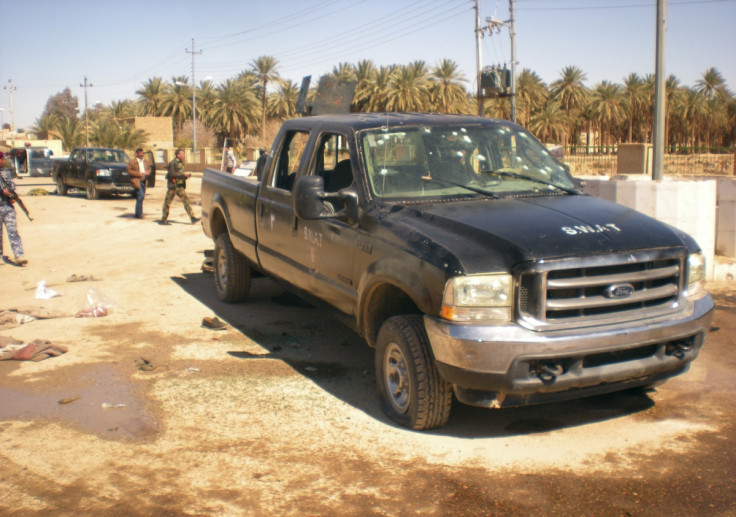Flood Fears as Isis Fighters Advance to Strategic Haditha Dam Near Baghdad

The Sunni Islamist insurgents in Iraq are closing in on the second-largest reservoir in the country as they advance to Baghdad.
The Iraqi army has warned it may have to pre-emptively open the floodgates of the Haditha Dam on the Euphrates River, around 120 miles (193km) from capital Baghdad, to stop the militants from unleashing catastrophic floods.
The fighters of the Islamic State in Iraq and the Levant (Isis) are surrounding Haditha from the north, the northeast and the northwest and have reached the town of Burwana where the security forces are trying to stop their march, the New York Times said.
The large dam, which acts as a major flood control structure in central Iraq and accounts for almost a third of the country's electricity generation, is also of strategic importance militarily.
"There is an increasing risk in the next day or two that ISIS will open the Haditha Dam ... If they open the dam, they can flood the area south of Baghdad as far as Karbala."
Weapon of mass destruction
The Iraqi army has warned the personnel manning the dam that they should be prepared to release waters from the reservoir in order to stop the insurgents from using it as a weapon of mass destruction.
The army admitted the opening of Haditha floodgates would cause destruction on both sides.
"Yes, I know, it will be against us and our enemies," an officer told an employee when he was reminded that opening the shutters of the dam would lead to flooding of the town and villages, the NYT reported.
Strategic analysts have also warned the Sunni militia could open the dam, which is located about 125 miles northwest of Karbala, Shiite Islam's third holiest city.
"There is an increasing risk in the next day or two that ISIS will open the Haditha Dam ... If they open the dam, they can flood the area south of Baghdad as far as Karbala," John R Maguire, a retired former CIA deputy station chief in Baghdad, told Newsweek.

The Isis fighters, who started their campaign early this month with the capture of Mosul city in the north, are making quick gains as they advance to Baghdad. On Wednesday they launched an attack on the al-Bakr airbase, known as "Camp Anaconda" during the US-led Iraq War, in the town of Yathrib.
The Isis aims to establish a hardline Sunni Islamist caliphate straddling Iraq and Syria. Their latest advance has come as US military advisers arrived in Baghdad to help Nouri al-Maliki's Shiite-led administration in dealing with the crisis.
In April, Isis fighters took control of the Falluja Dam and opened it, causing widespread flooding in nearby areas. The waters from the dam had reached up to the city of Najaf, and Abu Ghraib, near Baghdad.
In 2003, when US troops marched to Baghdad to oust Saddam Hussein, they had captured the dam to stop the Iraqi administration from destroying it and unleashing floods.
According to GlobalSecurity.org, the US army rangers had identified that the destruction of the dam would cause catastrophic effects throughout the country.
"In addition to its impact on the war front, the resulting flooding as an immediate aftermath and lack of water supply during the summer months would have added to the hardships being experienced by the Iraqi people."
© Copyright IBTimes 2024. All rights reserved.






